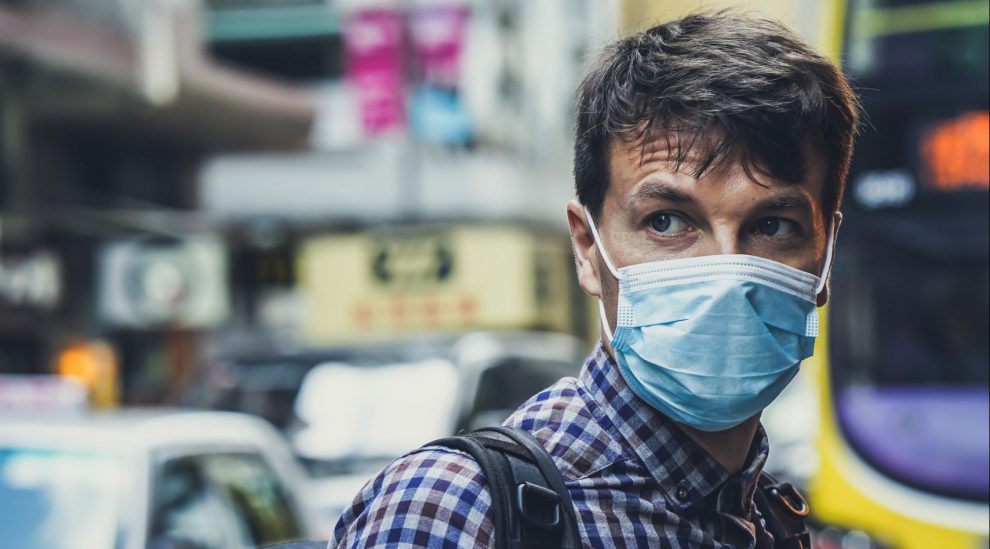Trying to write something that would speak to the 2020 election and Catholic voting during this outbreak of novel coronavirus has seemed like an impossible mountain to climb. Is any of us thinking about anything besides the pandemic? Can even the election and the vital questions of citizenship compare to the calamity upon us so suddenly today? But the questions of our public life have not gone away. In fact, they are entirely present to us right now, just in new ways.
From where we are today, it is difficult to know where we will find ourselves one year or five years after this all is over. There is one thing I think that our pandemic season inevitably means: the illusion of our individualism is crumbling.
The irony of Sen. Rand Paul (R-KY) being infected with the corona virus is so breathtaking that we cannot fail to take note. The son of longtime Texas congressman and libertarian darling Ron Paul, the junior senator from Kentucky told the 2012 Republican National Convention that, “You, the individual, are the engine of America’s greatness,” and in 2016 he told an NRA forum, “I will do whatever necessary to defend our God-given rights.”
Something like those bold words may have been in Sen. Paul’s mind when he chose to huddle with his infection and with fellow senators, or when he worked out in the Senate gym while millions of other Americans were practicing social distancing, limiting their own personal freedom and movements in the name of protecting others. It turns out the rugged individual can, in too many circumstances of this interconnected world, quickly become a menace to the rest of us and himself.
I wish Sen. Paul good health and a speedy recovery. He is not my target here. His dangerous ideas are.
The Catholic Church has taught us for centuries that we live inevitably and inextricably as persons embedded in communities. We are connected in ways we cannot see, in ways we rarely think about, and in ways sometimes we cannot fathom. We are not disconnected and isolated individuals, despite the earnest fantasies of Sen. Paul and too many others.
Now that we are confined to our homes and unable to gather in churches or other public spaces, perhaps it seems that we are disconnected and isolated. I think that what we are experiencing proves the reverse. Our nature tells us that this isolation is bad for us. We crave connection, and we are working to find connection. This experience we all are having today affirms what always is true about us, and what too often we delude ourselves into forgetting. We are social animals. We need each other. In ways that range from the spiritual to the political to the microscopic, we are connected to each other. All of our individual choices quickly lose their individuality once they begin to affect others, as others’ individual choices affect us.
The world before the pandemic was dangerously far down the road of destructive individualism. Such destructive individualism was kindling for the fire of our polarization. The capacity to see someone else hopelessly as ‘other’ begins with the certainty that we are not connected. The dangerous fantasy that we are not connected intimately to each other in ways that stretch beyond our perception also enables the consumerist attitude we take with us when we shop. “Save money, live better,” goes the familiar refrain. We overlook how others do not live better when I save money, and also how the consequences of their not living better will affect me. When workers are paid so little they must rely on public assistance and cannot afford health insurance the economic and social costs will shape the world my family and I live in.
“Your way, right away” assures not only that my cheeseburger will appear quickly, exactly as I ordered it, but also describes the online environment. Each of us lives online in a curated space made exclusively for us. Much has been written about the damage done to our politics by viewing the world from within a bubble where we learn over and over that our opinions are right. More subtle and corrosive is the quiet effect that has on us when we encounter something or someone different. Accustomed to getting only the reassurance that we do not need to change anything, we become resistant to change of any kind. We do not want to make the little concessions necessary to share the world with other people.
COVID-19 is a persistent reminder that we share the world with other people, whether we want to or not. And, they share it with us.
Terrible things are happening now and will continue to happen in months ahead. No good outcome is worth the suffering of those who grow sick and those who will mourn the dead. But we can honor their suffering and sorrow by taking something from this experience with us into our lives beyond it.
My friend, the filmmaker Cassidy Hall recently reminded us of Thomas Merton’s definition of “the heresy of individualism”: “thinking oneself a completely self-sufficient unit and asserting this imaginary ‘unit’ against all others, or, “The affirmation of the self as simply ‘not the other.’” It is the heresy Sen. Paul believes in, and our pre-pandemic world was spreading.
Looking around today, we cannot miss how Merton was right. It will be our responsibility to remember this bitter lesson on the bright day when we all can go outside and be together, again.
Image: Free To Use Sounds on Unsplash















Add comment